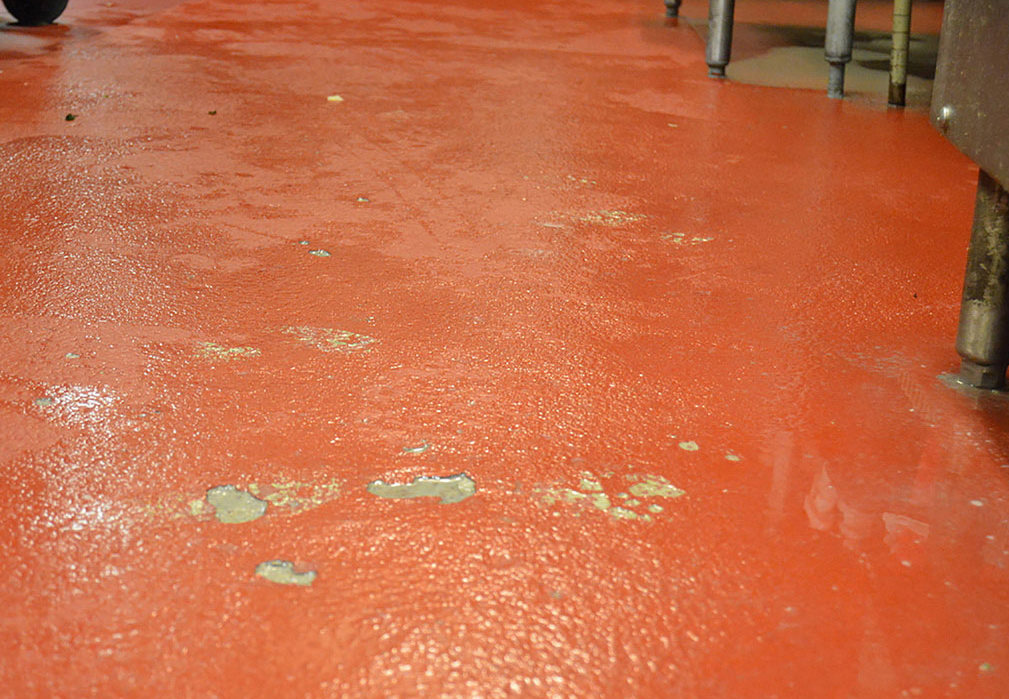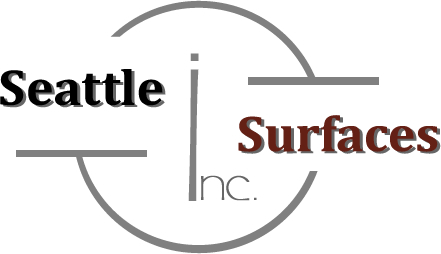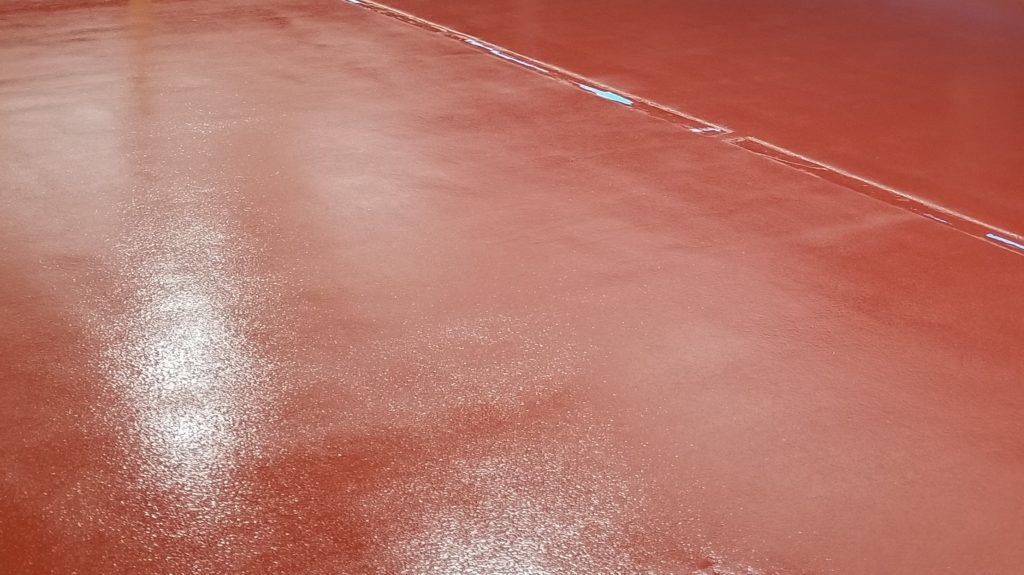Coated Floors and Thermal Shock: Why It Matters
Thermal shock is the term used to describe different parts of an object expanding at different rates due to rapid fluctuations in temperature. When a floor is coated, ideally the coating becomes a part of the floor. Since many coatings are made of materials other than concrete, (think epoxies and polyaspartics) they expand at different rates than concrete. If your floor is subject to rapid temperature fluctuations, like what occurs when commercial kitchens hot pressure wash, or if hot grease were to spill, the wrong floor coating will fail.
If you have ever taken a hot rock from beside a campfire and tossed it into a cold river, you know it will explode. As the outer surface cools rapidly, the inner mass remains largely unchanged. The rapid change in volume between the outer layer and the inner layer creates stresses that eventually exceed the strength of the rock itself and it will violently crack. This is thermal shock.
When a cool floor coating is hit with hot water from a pressure washer or a hot grease spill, the bond between the coating and the floor is the weakest point which will cause the wrong coating to delaminate from thermal shock. Urethane cement is a coating specifically designed to expand and contract at a rate close enough to concrete to prevent thermal shock. Standard epoxies and polyaspartic coatings can’t withstand drastic temperature variations and will eventually fail.

Urethane cement coatings aren’t cheap, but for commercial kitchens and food processing plants, a shut-down to repair a failed coating could be catastrophic to the business. Their extreme durability and anti-slip properties make them a great choice for even the harshest environment. Urethane cements also hold up well to moisture vapor which can be problematic for traditional epoxies and polyaspartics.
If you are considering a coating in a space where there are rapid temperature variations, urethane cement might be right for you. For a free site evaluation, email us at info@seattlesurfaces.com or give us a call at (425) 586-0706
Related Posts
Categories
- Acid Etch (2)
- Acid Stains (1)
- Acrylic (1)
- Basement Flooring (5)
- Broomed Overlay (1)
- Commercial Flooring (15)
- Commercial Kitchens (4)
- Concrete Dyes (5)
- Concrete Resurfacing (17)
- Decorative Concrete (16)
- Decorative Concrete Coatings (16)
- Designer Epoxy Flooring (5)
- DIY Epoxy Kits (3)
- Embedded Logos (2)
- Epoxy (15)
- Epoxy Broadcast Floors (1)
- Epoxy Coatings (7)
- Epoxy Flooring (6)
- Epoxy Floors (6)
- Epoxy Mositure Barrier (4)
- Epoxy Paint (4)
- Featured Post (6)
- Flexible Epoxy (1)
- Fluid Applied Floors (3)
- Food Processing (2)
- Garage Floor Coatings (7)
- Hand Troweled Floors (1)
- Hot Tire Pick Up (2)
- Integral Cove Base (1)
- Loading Docks (1)
- Metallic Epoxy (5)
- Metallic Marble Stains (2)
- Micro-toppings (10)
- Moisture Mitigation (2)
- Plywood Sub-Floors (1)
- Polyaspartic (9)
- Polyurethane (7)
- Seamless Floors (13)
- Spray-on Overlay (1)
- Stained Concrete (5)
- Stamped Concrete (4)
- Stencils (3)
- Thermal Shock (1)
- Uncategorized (3)
- Urethane Cement (3)
- Water Damage (1)
- Waterproof Concrete Decking (1)

